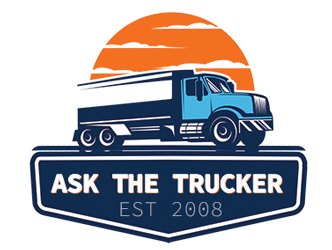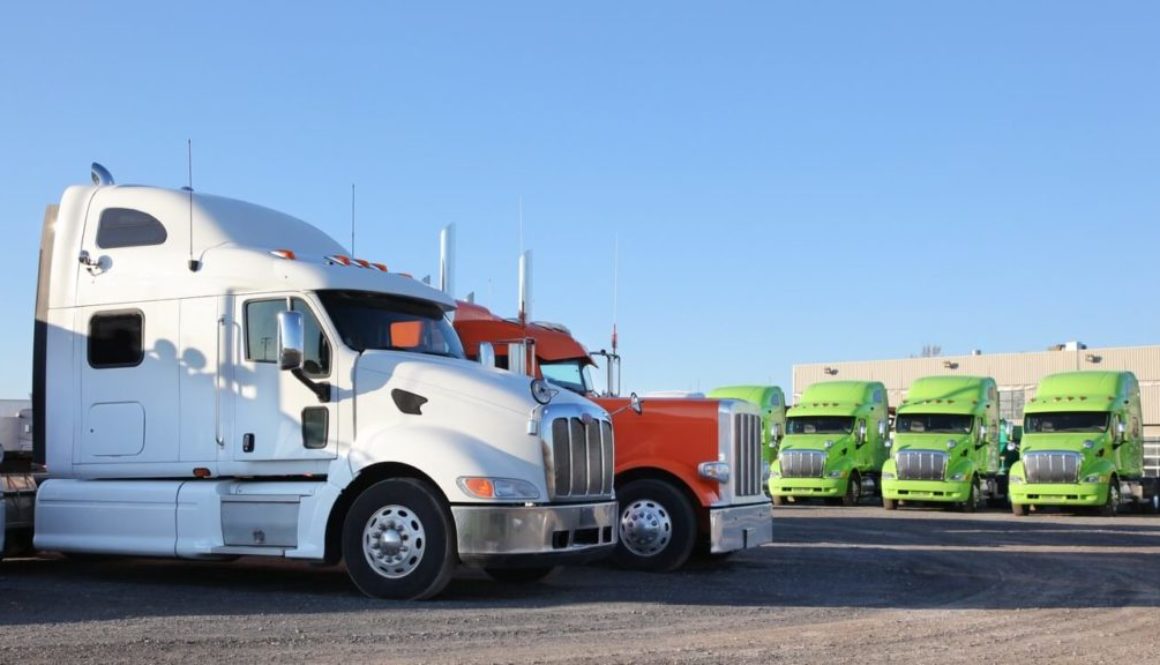How Much Does It Cost To Own A Commercial Truck?
Truckers often dream of the day when they can purchase their own commercial truck and become independent contractors or better, owner-operators.
However, commercial vehicles are not cheap, which is why many truckers continue to lease vehicles from their employers.
In fact, trucks cost much more than their initial asking price, but the advantages to ownership are not insignificant. If you are struggling to decide whether you should invest in your own commercial rig, here are some facts and figures to consider.
Owning a semi truck means more than just the initial purchase price. Becoming an independent contractor or owner-operator involves various expenses such as fuel, insurance, and maintenance. Here are some factors to consider when thinking about owning a commercial truck:
- Brands: Kenworth, Volvo, and Tesla are popular manufacturers of semi-trucks.
- Expenses: These can include fuel, insurance, maintenance, and permits/licenses.
- Benefits: Higher wages and increased profits as an owner-operator compared to company drivers.
It’s essential to weigh the pros and cons before deciding to invest in your own big rig.
Initial Price
When considering the purchase of a new or used semi-truck, the initial price can be influenced by factors such as the make and model, age of the vehicle, and its wear and tear. Specific brands like Peterbilt and Volvo are known for their luxury, while Mack trucks are praised for their durability, which can also contribute to the price differences.
It’s essential to find a trustworthy vendor, as prices for identical trucks can vary greatly between sellers. Dealers might inflate prices to maximize profit, so finding a reliable vendor is crucial for securing an affordable deal on the desired truck.
In general, expect to pay over $100,000 for a first commercial vehicle. A new day cab typically costs around $113,000, while a sleeper model may cost approximately $125,000. Adding a new trailer to a standard rig can increase the expense by an additional $50,000. Specialty trucks, such as those used for logging or long-combination purposes, tend to be more expensive.
Opting for a used semi-truck can result in lower initial costs, but it is essential to consider the potential risks involved, such as increased maintenance expenses and shorter useful life due to wear and tear.
When choosing to buy or lease a semi-truck, consider the available financing options, warranty coverage, and potential down payment requirements. Loan and lease terms will vary depending on the specific circumstances and credit history of each prospective buyer or lessee. In some cases, lease purchase or owner-operator arrangements may provide more flexible financing options.
Overall, various factors contribute to the initial price of a semi-truck. Evaluate the specific needs for your trucking operation, and consider the financial implications to make an informed decision.
Lifetime Price
Owning a semi-truck comes with various expenses throughout its lifetime, such as insurance, maintenance, and fuel costs.
- Fuel is the largest operating cost for truckers. While the average four-wheeler will consume around 500 gallons of gasoline every year, your 18-wheeler drinks at least 41 times that, which is easily more than $70,000 annually.
- Truck repair is another significant expense. A driver’s worst nightmare is seeing smoke, and all those hours on the road will eventually put your truck in the shop. Regular maintenance adds up to roughly $15,000 per year. Routine scheduled maintenance helps prevent unexpected breakdowns and costly repairs, ensuring the truck runs smoothly.
- Insurance is a mandatory expense. Fortunately, truck insurance can be surprisingly affordable. For $6,500 yearly, you can protect your investment as well as your client’s goods from dangerous accidents.
- Licenses, permits, and tolls are often forgotten expenses. Truckers need special licenses and permits to operate their equipment, and tolls on roads throughout the U.S. will add up fast.
In addition to the aforementioned expenses, semi truck prices, depreciation, mileage, tire expenses, and age of the truck also contribute to the overall lifetime cost.
Taking all factors into account, semi-truck ownership results in various expenses that should be properly budgeted for by independent contractors and owner-operators to ensure profitability and smooth operation.
Ownership Benefits
Taking the leap and purchasing a semi-truck can seem intimidating due to the costs involved. However, owning a truck has distinct advantages that offset these expenses and ultimately prove to be a profitable decision for an individual in the long run.
When you make the empowering decision to invest in your own truck, you’re investing in your career and financial future. As a truck owner, you secure the opportunity to become financially independent in the transportation industry. Unsurprisingly, owner-operators tend to earn higher wages than company drivers, making the investment in truck ownership a viable option to increase income.
Moreover, owning a truck provides the freedom to work where you want and select your loads. There’s also the option of working with a company or running your own business, which allows you to have more control over your revenue.
It’s essential to carefully research and evaluate financing options to find the best solution for your situation, keeping lifetime costs in mind to avoid purchasing more truck than you can afford.
In summary, truck ownership may come with significant initial costs, but the benefits of having control over every aspect of your work and experienced drivers with ample opportunities to generate higher income make it a worthwhile investment. Consider carefully all pros and cons before purchasing your own truck and setting out on the path to achieve your goals as an independent owner-operator in the freight industry.
How Much to Rent a Semi Truck?
When looking into renting a semi truck, it is essential to consider various factors that can affect the cost. The cost of renting a heavy-duty tractor, such as a diesel truck, primarily depends on the rental duration and the type of vehicle. Semi truck rentals usually include single axle and tandem axle day cab, as well as sleeper cab trucks.
Some of the popular features offered with these trucks include collision mitigation systems, air-ride rear suspension, automated/manual overdrive transmission, air conditioning, AM/FM stereo with AUX or USB input, Bluetooth, air disc brakes, and engine brake, among others.
The specific models cater to different industry needs and can handle varying gross combined weights as well. For instance, single-axle day cab tractors have a capacity of 65,000 lb., tandem-axle day cab tractors can manage up to 80,000 lb., and tandem-axle sleeper tractors hold the same gross combined weight of 80,000 lb., but with additional capabilities and features.
To rent a semi truck, a valid Commercial Driver’s License (CDL) is required, as it is necessary for driving these vehicles on public roadways. In addition to heavy-duty semi trucks, some providers like Penske also offer 48 and 53-foot dry van trailers for rent. This availability makes them a convenient one-stop-shop for businesses seeking both semi truck and trailer rentals.
It is crucial to note that the mentioned specifications are based on the most commonly rented fleet, and actual measurements may vary according to the specific make, model, and year of the chosen vehicle. For detailed information on semi truck rental costs, it is advised to contact the rental provider directly.
Frequently Asked Questions
Common Expenses for Owning a Semi-Truck
There are various expenses associated with owning a semi-truck. Some of these include:
- Purchase or lease cost
- Fuel
- Insurance
- Maintenance and repairs
- Tires
- Taxes and registration fees
- Licensing and permits
Annual Maintenance Cost
The average cost of maintenance per year for a semi-truck can range from $15,000 to $20,000. This includes routine maintenance as well as any necessary repairs.
Owner-Operator Expenses Per Mile
Owner-operators typically spend about $1.50 to $2.00 per mile to operate their trucks. This includes expenses like fuel, maintenance, and insurance.
Typical Insurance Costs
The insurance cost for a semi-truck typically ranges from $3,000 to $5,000 per year, depending on factors like driving history and coverage level.
Taxes Variation in Semi-Truck Expenses
Taxes for semi-truck owners can vary based on several factors, such as the state where the truck is registered and the type of tax structure in that state. Additionally, federal taxes, like the Heavy Vehicle Use Tax (HVUT), may apply.
Truck Models with Lower Maintenance Costs
Some truck models tend to have lower maintenance costs due to their well-known reliability and ease of finding replacement parts. Examples of such models include the Freightliner Cascadia, Peterbilt 579, and Volvo VNL. However, it’s essential to research and compare models based on your specific needs and budget.

